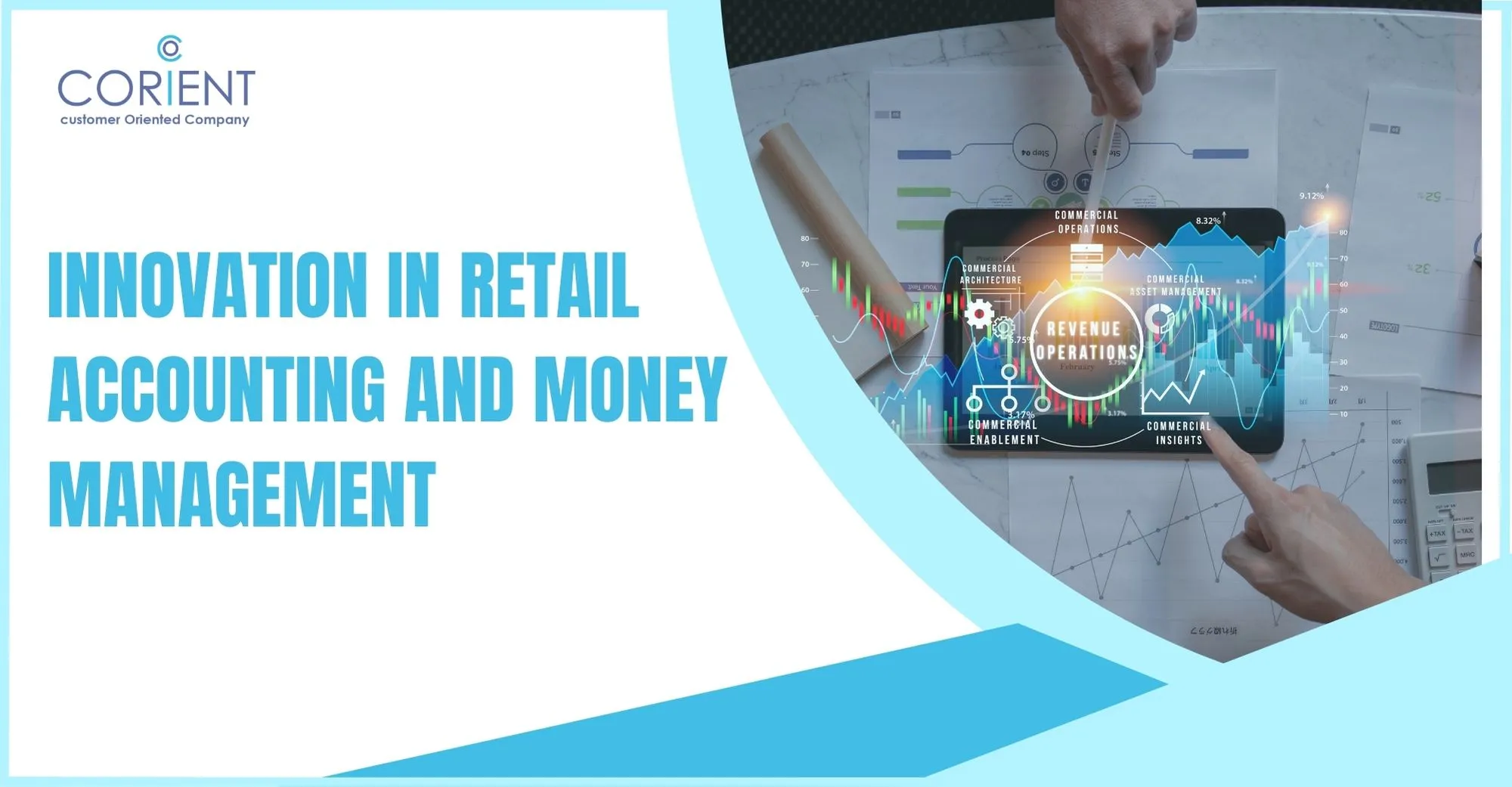Welcome to the world of e-commerce accounting, where numbers meet online sales and financial savvy meets digital success! As an e-commerce business owner, you know that keeping your finances on track is vital for sustainable growth. But it’s important to note that navigating the complex realm of accounting can be difficult.
But it can be taken care of by going through this blog post. In it, we’ll unravel the mysteries of e-commerce accounting and provide you with key tips to make it easier than ever before. From understanding your financial reports to choosing the right accounting software and managing inventory, we’ve got you covered.
By applying these strategies, you’ll gain clarity about your business’s financial health while freeing up valuable time that can be invested in your core business activities.
So, get ready to dive into the world of e-commerce finance.
Understanding Your Financial Reports
Financial reports are an essential tool for any e-commerce business owner. These reports provide a valuable understanding of the financial health and performance of your online store. By understanding these reports, you can make up-to-date decisions about your business’s future growth and success.
The most important among these financial reports is the income statement, also known as the profit and loss statement. This report shows your revenue, expenses, and net profit or loss over a specific period. It provides an overview of how much money your e-commerce business is making and where that money is going.
Another important report is the balance sheet which provides a snapshot of your company’s assets, liabilities, and equity at a given point in time. It helps you to understand how well your business is managing its resources and whether it has enough capital to cover its debts.
To check the cash flow in your e-commerce business you will need the help of the cash flow statements. It will show changes in operating activities, investing activities, and financing activities that will affect your overall cash position. Through monitoring of cash flow, you will be able to identify any possible liquidity issues or opportunities for investment.
By going through the above-mentioned financial reports regularly, you will be able to understand your business better. You will be able to find the products or services that are in high demand or where unnecessary expenses are made. Hence it is important to maintain the accuracy of these reports and for that, you will have to integrate accounting software with your online store platform.
Choosing the Right Accounting Software
As mentioned above, for streamlining your e-commerce business accounting you will need to choose the right accounting software. But with so many options available you might not be able to make the right choice. To help you out, we have considered some factors.
Firstly, list down the features that are important for your e-commerce business. Do you need inventory management? Do you require automated invoicing and payment reminders?
Take scalability into consideration because as your e-commerce business grows your accounting software needs to adapt accordingly. It is vital to choose software that can adapt and handle increased volume without trouble or with the requirement of massive upgrades.
Also, consider how well the accounting software can integrate with other systems. Your e-commerce platform, payment gateways, and other tools must integrate effortlessly with your chosen accounting software to modernize processes and remove manual data entry.
Take the cost into consideration by choosing the accounting software that offers good value for your money and fits your budget. Also, don’t forget about customer support and user reviews. A reputable company with excellent customer service will be there to assist you if any issues arise along the way.
By assessing the above factors before making a decision, you will be able to choose an accounting software that meets all of your e-commerce business requirements.
Tracking Sales and Expenses
You need to know as to what is going on in your e-commerce firm, hence you must keep track of sales and expenses. By tracking your sales, you are monitoring the revenue streams and identifying the best-performing products and services. On the other hand, monitoring expenses helps you understand where your money is being spent and where cost-saving measures can be implemented.
One way of effectively tracking your sales is by selecting and using accounting software that integrates with your e-commerce platform. This synchronization of data will enable you to get real-time updates on sales transactions. With such crucial information, you will be able to understand the trends, customer behavior, and overall financial performance.
Apart from tracking sales, you must also keep an eye on the expenses. By cataloging and recoding all the expenses accurately, you will get to know where costs can be reduced or optimized. This can be done by recurring monthly expenditures such as marketing campaigns or subscription fees for various tools and resources.
By implementing the system of tracking you will be able to manage both sales and expenses successfully. Through close tracking, you will be able to reduce the risk of overselling or stocking up on excess inventory unnecessarily.
By diligently tracking both sales and expenses in a systematic manner using appropriate tools or software solutions tailored for e-commerce businesses will enable better decision-making when it comes to pricing strategies, budgeting efforts, and allocating resources efficiently.
Managing Inventory and Cash Flow
In e-commerce accounting, it is important to manage inventory and cash flow effectively. By correctly handling your inventory levels and monitoring cash flows you can make informed business decisions and maintain financial stability.
For managing inventory, you will be required to have accurate tracking systems in place. This includes keeping track of stock quantities, reorder points, and anticipated lead times. By having this information readily available you can avoid overstocking or running out of essential items.
Through regular inventory audits, you will get updates on your business performance. You will be able to analyze the sale trends and identify products that have less demand, thus reducing carrying costs.
Under cash flow management, you will be monitoring both inflows and outflows. Thus, ensuring enough liquidity to cover your operation expenses which is required to keep your business running smoothly.
Implementing effective cash flow management strategies such as setting aside funds for emergencies or unexpected expenses can provide a safety net during challenging times. Additionally, forecasting future cash flows based on historical data helps identify potential gaps in funding so that appropriate measures can be taken proactively.
By actively managing your inventory levels and carefully monitoring cash flow, you’ll be better equipped to allocate resources efficiently while maintaining financial stability for your e-commerce business.
d create sustainable competitive advantage.
Tax Considerations for E-Commerce Businesses
Taxes are something that all businesses will have to deal with including e-commerce. Understanding and addressing tax considerations is crucial to keeping your finances on track. Here are some points to keep in mind:
- Sales Tax: It important to stay informed about sales tax and its laws in each country where your customer resides.
- International Taxes: If you are selling your products or services internationally then you must be able to handle complex international taxes.
- Deductions: Like any business, e-commerce businesses are also subjected to various deductions while filing their taxes. These deductions include expenses related to shipping, packaging materials, advertising costs, website maintenance fees, and more.
- Recordkeeping: Proper recordkeeping is essential when it comes time to file your taxes as an e-commerce business owner.
Hiring an Accountant
To manage your e-commerce accounting, you can decide between hiring an accountant or handling with yourself. But handling accounting yourself is not only complex but it also diverts your attention and resources away from your core business.
By hiring an accountant can provide valuable expertise and reduces diversion of attention. A professional accountant understands the details of e-commerce accounting and can ensure accuracy in recording sales, tracking expenses, and managing tax obligations. They can also offer advice on optimizing cash flow and minimizing risks.
Conclusion
In this fast-paced world of e-commerce, staying on top of your finances is crucial for the success and growth of your business. By implementing effective accounting practices, you can ensure that you have a clear understanding of your financial position and make informed decisions to drive profitability.
By following best practices such as reconciling accounts regularly, utilizing automation tools where possible, being proactive about tax planning, and conducting periodic reviews of your financial performance – you’ll be well-equipped to navigate the complexities of e-commerce accounting. If implementing it is problem for you and your in-house team then you can outsource by selecting an outsourcing service partner such as Corient Business Solutions.
At Corient, we specialize in offering services as per your e-commerce business accounting requirements. Our services are designed to give your practice an edge in the market. Upgrade your practice by partnering with us and adding value to your services. We can connect at your convenience on a call or online meeting where we can discuss in detail about our services.








